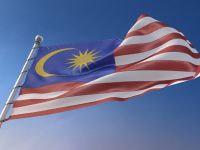By recruiting Pakistan as the cornerstone of its anti-terrorist campaign in Central Asia, the US is resting its weight on a country already gripped by deep political, religious and ethnic divisions.
Seizing the spotlight of late has been anti-US activism by Islamist activists, who have already suffered several casualties in well-publicized clashes with the security forces of “soft dictator” General Pervez Musharraf.
But even within Muslim ranks, there is disagreement over the rights and wrongs of the general’s espoused support for the US war against Afghanistan’s ruling Taliban militia. This is especially true given that, by CIA estimates, 20 percent of Pakistan’s population belongs to the same Shiite Muslim sect that the Sunni Muslim Taliban spent several years fighting in Afghanistan.
There are even allegations that the Taliban massacred Shiite opponents in the town of Mazar-e-Shareef in the late 1990s, an accusation that could feed conflicts among Pakistan’s Muslims as they attempt to close ranks over the Afghan war issue.
Whether or not Pakistan’s fractured Muslim community unites against the US, there will clearly be Islamist opposition, as evidenced by the several thousand people CNN reported as turning out for rallies in the cities of Peshawar, Islamabad, Quetta and Lahore in recent days.
Pakistan is also an ethnic stew, with Punjabi, Sindhi, Pashtun, Baloch and Muhajir residents rubbing shoulders. The fact that many Pashtun live across the border in Afghanistan may convince them to support the brewing opposition to the US war.
This sentiment was borne out by a Washington Post article this week, which quoted a 27-year-old Pakistani Pashtun farmer as saying: "We are the same race and the same religion…We share the same blood."
But while the Pashtun factor could pose an obstacle to US plans, ethnic rivalries could also make the majority of their compatriots less enthusiastic about risking life and limb to oppose a war across the border.
At the same time, the political system that is supposed to meld together Pakistan’s religious and ethnic groups has been diving from crisis to crisis for years.
The latest upheaval took place in October 1999, when Musharraf, then the chief of army staff and chairman of the Joint Chiefs of Staff Committee, suspended Pakistan's Constitution and assumed the additional title of chief executive.
Musharraf’s move came after months of bickering and strong-arm tactics among Pakistan’s alphabet soup of political parties, and the general billed himself as the savior of stability in a shaky nation.
But critics say the head of state has stifled domestic opposition and failed to ensure respect for human rights.
“Despite the government's stated commitment to human rights protection, human rights violations including torture and deaths in custody increased during 2000,” notes the most recent Amnesty International report on Pakistan.
“Minorities were not given adequate protection when religiously motivated violence flared up…Political activities remained restricted following a ban on public activities in March.”
“Activists contravening the ban were detained and some were charged with sedition. Several people detained at the time of the coup remained in unlawful detention,” adds the report.
This context of political detentions and strife will inevitably make it harder for Musharraf to rally support for his backing of the US war.
One thing is clear, however: The US is relying so heavily on Pakistan that it is willing to provide rewards in advance, simply to make up for the trouble of putting down domestic unrest.
In exchange for Pakistan's cooperation with possible attacks against the Taliban regime, Washington on Monday waived nuclear-related sanctions imposed in the 1990s, according to AFP.
The US government also rescheduled some $379 million in Pakistani debt and interest repayments.
It remains to be seen whether such US incentives can buy the time and steadiness Washington hopes for as it approaches a war in Afghanistan, while relying mainly on an unlikely – and less than stable – new ally – Albawaba.com
© 2001 Al Bawaba (www.albawaba.com)









